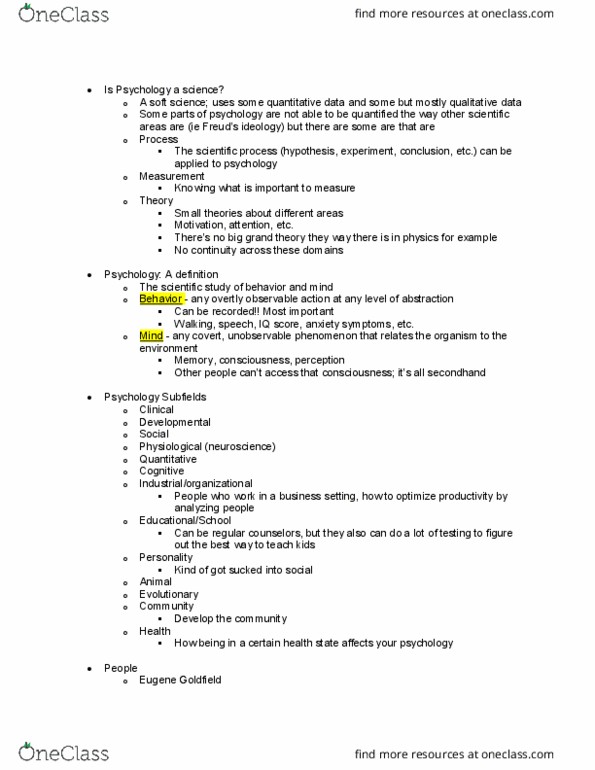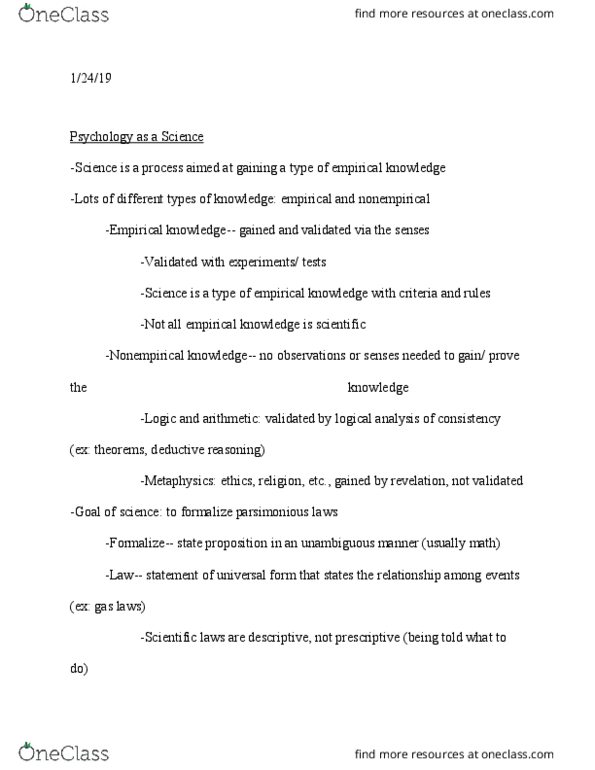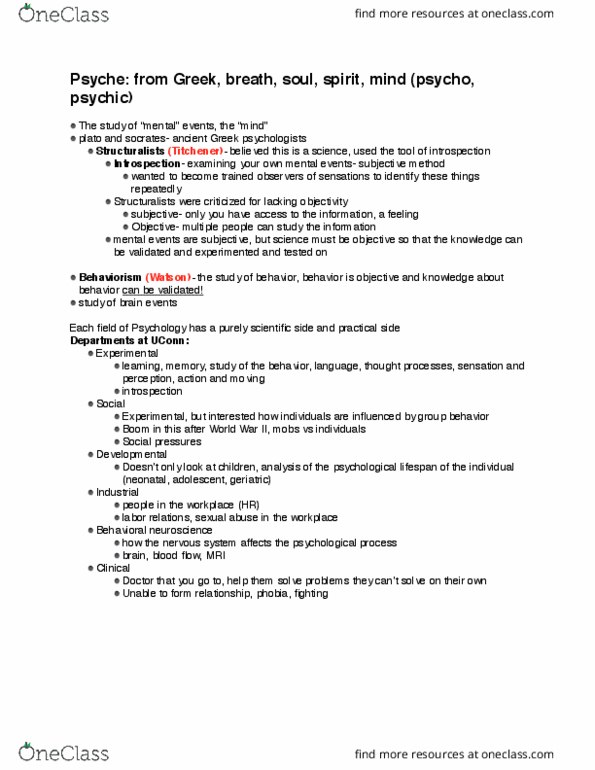PSYC 1100 Lecture 2: Psych 1/24/19 (Updated)
PSYC 1100 verified notes
2/30View all
Document Summary
Science is a process aimed at gaining a type of empirical knowledge. Lots of different types of knowledge: empirical and nonempirical. Empirical knowledge-- gained and validated via the senses. Science is a type of empirical knowledge with criteria and rules. Nonempirical knowledge-- no observations or senses needed to gain/ prove the knowledge. Logic and arithmetic: validated by logical analysis of consistency (ex: theorems, deductive reasoning) Metaphysics: ethics, religion, etc. , gained by revelation, not validated. Formalize-- state proposition in an unambiguous manner (usually math) Law-- statement of universal form that states the relationship among events (ex: gas laws) Scientific laws are descriptive, not prescriptive (being told what to do) Laws can"t be proven, but must be verifiable and falsifiable. Cause: must be antecedent (comes first), necessary, and sufficient. Correlation is a linear relationship between two variables (r = 1. 0) (r is how correlation is measured- closer to 1, stronger the relation)





